Director: Shunya Ito
Cast: Meiko Kaji, Mikio Narita, Reisen Lee, Yayoi Watanabe, Koji Nanbara, Takashi Fujiki
Running Time: 87 min.
By Kelly Warner
Female Prisoner Scorpion: Beast Stable is a very different movie from the two that came before it. Meiko Kaji’s Matsu the Scorpion is on the lam after having narrowly survived her prison escape in Jailhouse 41. Wanted posters with her face are all over the city streets, warning that she is a dangerous fugitive. We join Matsu on the subway, sitting silently by herself while those around her read newspapers with her face on them. Detective Kondo (Mikio Narita) and his partner notice Matsu and slowly approach. Just before they’re ready to grab her, out comes the Scorpion’s blade. She fights them off and runs for it, but not before Kondo handcuffs himself to her. Matsu rushes out of the subway car and the doors close on Kondo’s arm. The Scorpion doesn’t hesitate before she starts chopping away on the detective’s right arm, soon hacking it off and leaving him screaming inside the subway car as it pulls away from the station. Matsu runs off, covered in blood and still attached to the severed limb, passing by frightened bystanders who look confused enough to possibly be unwitting extras to one of the most violent opening sequences in cinema.
Unlike the first two films, where 99% of the characters wanted Matsu dead in some way, Beast Stable grants her a friend in the hooker Yuki (Yayoi Watanabe, who was also in #701: Scorpion). It’s not a perfect friendship, though. Things get off to a weird start when Yuki first meets Matsu chewing on Detective Kondo’s severed arm in the shadows of a graveyard that’s lit exclusively by neon lights of nearby bars. Yuki takes Matsu to her place, where Matsu meets Yuki’s sex-starved, brain-damaged older brother, a man whom Yuki defends and alternatively plots to kill totally depending on the day. There’s no shortage of sleaze and uncomfortable character interactions as Matsu settles into a routine of life in the shadows, working as a seamstress to pay her rent, and defending her friend Yuki.
All is going relatively well until a moment of violence against a yakuza lands Matsu at the feet of her new employers, who in addition to running a legitimate business also force women into prostitution on the side. They’re ready to beat her and let her go, but then the boss’s wife recognizes Matsu the Scorpion from the time she spent in prison. Reisen Ri (aka Reisen Lee) plays the cruel boss lady Katsu over the top, complete with crazy dresses and ugly makeup that make her look like a drag queen, plus violent animal pets and a very stagey villain’s laugh. Seeing her chance at putting the Scorpion in her place, Katsu drugs her and throws her into a cage of ravens. (This sequence isn’t nearly as frightening or as weird as I imagine they planned it. The birds mostly ignore Meiko Kaji.) Of course, Matsu soon escapes her cage and vows revenge. The increasing body count attracts the attention of the one-armed Detective Kondo, who starts closing in on Scorpion looking to exact personal revenge more than to serve the law.
Female Prisoner #701: Scorpion and its immediate sequel Jailhouse 41 were fast-paced thrillers filled with violence, madness, sleaze, and political commentary. Beast Stable is more of a slow-burn, more character-driven. This may not be the ‘crowd pleaser’ that the first two films were, but it does give Meiko Kaji some of her most interesting acting moments in the series. Beast Stable explores some of Scorpion’s softer edges, and though it’d be going too far to call her ‘vulnerable’, she does let her guard down at times. Hell, she even cries at one point. It is an excellent dramatic performance, again performed mostly silent. And I enjoyed the quieter moments which allowed Matsu to stand beside a friend and have a beer. It’s a nice evolution for the character, and serves as a reminder that she wasn’t always a violent antihero.
Yayoi Watanabe is good as Yuki. Though she’s a hooker caught in an incestuous relationship with her brother, she’s also the most ‘normal’ character in the film. Mikio Narita (Zatoichi and the Chess Expert) is surprisingly reserved as the villainous Detective Kondo. And Reisen Ri nearly steals the show as the campy villain Katsu.
This would be director Shunya Ito’s last entry in the series. He made his directorial debut with #701: Scorpion and wanted to branch out. Ito’s three Scorpion films came back-to-back-to-back. All other future films in his career would be more spread out, with only eleven more films over the next 40 years. Though still best remembered for his Scorpion films, Ito remembers in an interview that a Toei executive considered never releasing the original film, likely because of its questionable content. Ito was the head of the studio’s union at the time and he ultimately prevailed, which is something the studio really should thank him for because the films became big successes both financially and critically. Future Ito films would invite a different kind of controversy. 1985’s Gray Sunset was a popular film in Japan and was selected to represent the country in the Best Foreign Language Film category at the Oscars, despite the rest of the world heaping praise upon Akira Kurosawa’s Ran. (Ran was nominated for four Oscars and won for Best Costume Design, which is a rare level of recognition for a foreign film in an American awards show. Gray Sunset didn’t make the cut for Best Foreign Language Film and has been largely forgotten about outside of its native Japan.) Ito’s 1998 film Pride was a biopic about Prime Minister Tojo, which presented the man in a positive light. Though a box office success in Japan, critics (especially those of other Asian countries) accused the film of historical revisionism, saying Ito whitewashed Tojo’s role in the war and ignored the country’s human rights crimes. Ito defended his film and tried to explain his intentions but, with the exception of a documentary about filmmaking, he would not make another feature film for over a decade.
Ito’s first two Scorpion films had some strong, angry political commentary. Beast Stable has considerably less on its mind. One new theme that Beast Stable explores is motherhood. Motherhood is something that horror likes to return to often but Beast Stable finds some strange new territory in the theme. One disturbing sequence finds two abortions happening at the same time in two different locations. One is sad, the other is terrifying. It’s horrific stuff, and reminds me of the chestburster scene in Ridley Scott’s Alien – and on that note, seeing a similar sequence to the chestburster playout in a real-world situation helps me better understand how/why women reacted so strongly to Alien in 1979.
This is not my favorite Scorpion film but it does feature one of my favorite moments, as we later return to the abortionist’s sterile, white operating room and witness blood spraying onto the walls. There’s no characters at first, no sign of who is bleeding to death, just the sight of blood spray on white. It’s a trippy revenge fever dream.
Beast Stable hits Blu-ray for the first time in the West from Arrow video as part of their new box set. Again, the picture quality is rather disappointing. I don’t think it’s as blue looking as the first two films. But it’s pretty rough looking. Deep blacks appear to flicker at times. To put it simply, it doesn’t look like a Blu-ray. Again, this is all based on the print that Toei provided, so one is forced to assume that this was a case of poor source materials and not a Blu-ray transfer gone wrong. Still, it’s too bad. Features on the disc include an appreciation from critic Kat Ellinger who praises Japanese exploitation cinema, a visual essay from Tom Mes about the career of Meiko Kaji, and an archival interview with Shunya Ito on working with Kaji, in which Ito admits he didn’t want Kaji in his movie because he so disliked her in Wandering Ginza Butterfly. I enjoyed the Meiko Kaji career spotlight the most, because it allowed me to learn more about the career of one of my favorite actresses, who has made many films that remain unavailable to me and others (after the 70’s Kaji did a LOT of TV work).
This would be director Shunya Ito’s last Scorpion film and he ends the story with a stylish, satisfying finale. But this wouldn’t be the last Scorpion film for Meiko Kaji, who would return to the role in director Yasuharu Hasebe’s 701’s Grudge Song. Beast Stable is the quietest of Ito’s Scorpion films; less savage, more brooding. Though not my favorite entry in the series, it does give us one of Kaji’s best performances and a villain you love to hate in Reisen Ri, making it an essential chapter for fans.
Kelly Warner’s Rating: 7.5/10



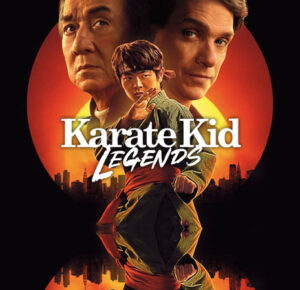

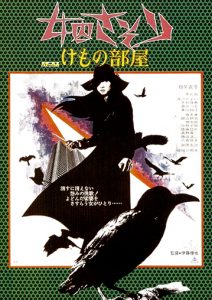
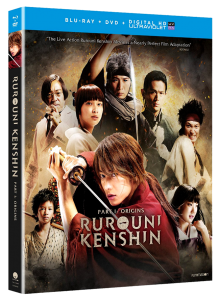


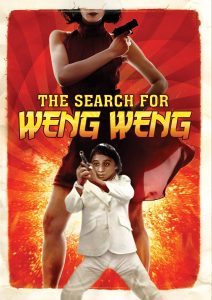
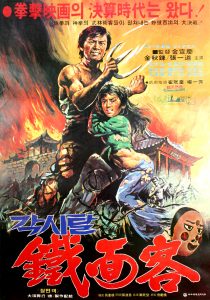
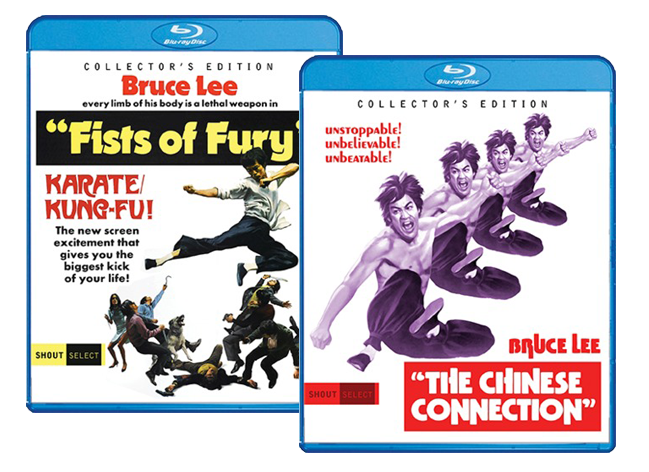


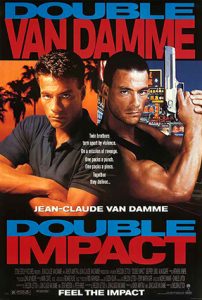
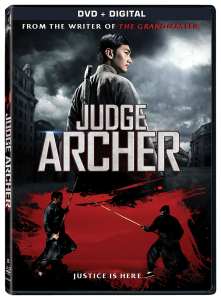
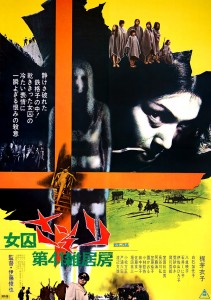
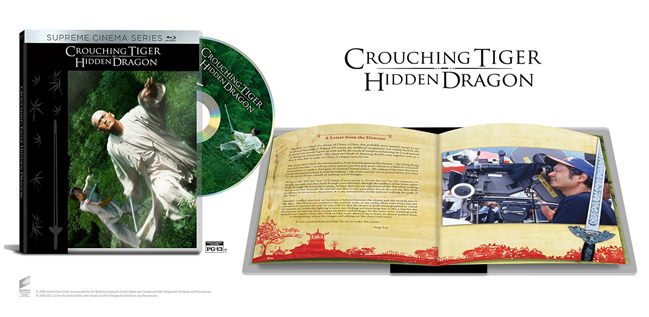
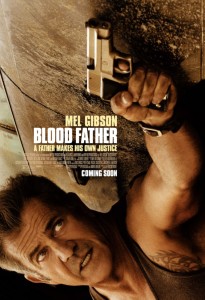




Be the 1st to Comment